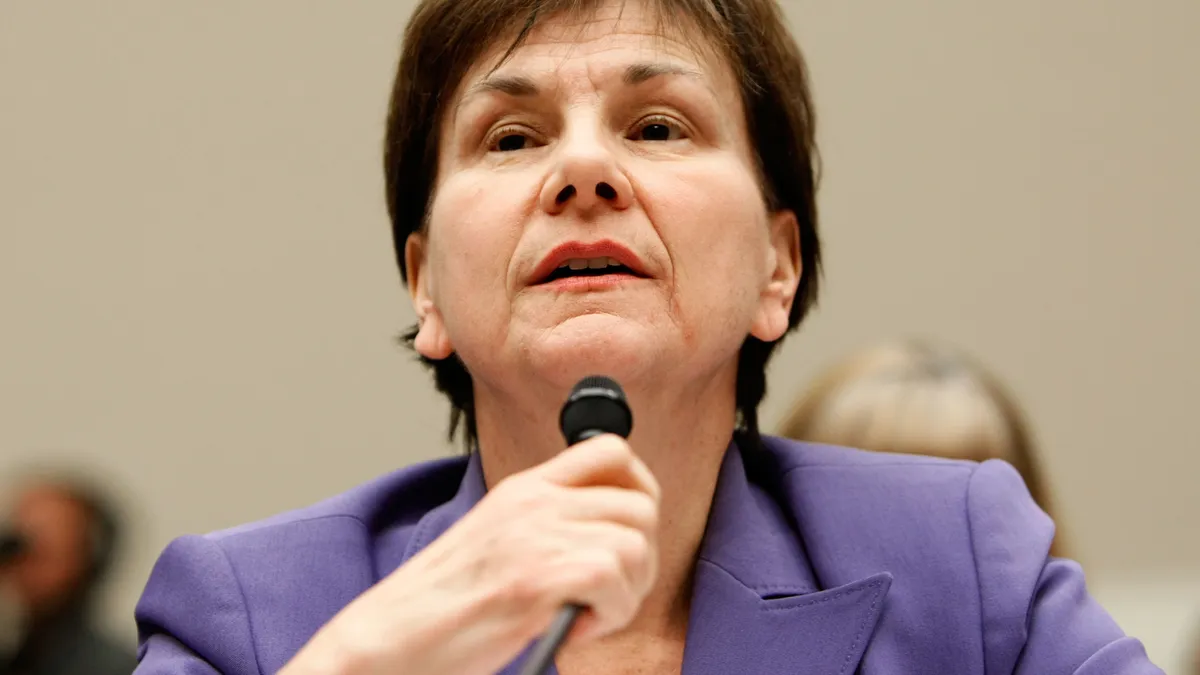Dive Brief:
- FDA has called for new powers and more funding to improve its ability to prevent medical device shortages.
- Janet Woodcock, the acting FDA commissioner, said in a Wednesday statement the pandemic "exposed great weaknesses in the medical device supply chain" that the U.S. needs to resolve to ensure it is better prepared for future crises.
- In addition to $21.6 million for a shortage prevention program, part of the agency's fiscal year 2022 budget request, Woodcock wants Congress to give FDA "expanded authority to obtain supply disruption notifications for critical devices any time there is the potential for a shortage."
Dive Insight:
Woodcock's statement setting out the need for more money and powers comes a day after giving testimony to the Senate Committee on Health, Education, Labor, and Pensions. At that meeting, Woodcock described the work FDA did to ensure the supply of medical devices during the pandemic.
The volume of COVID-19 emergency use authorization requests for medical devices quickly rose to "two orders of magnitude" higher than the peak of any previous public health emergency, Woodcock said in the hearing testimony. To help manage the workload, FDA revised its EUA review processes to "incorporate the latest information on device availability and shortages."
The changes led FDA to prioritize devices that could help address significant shortages.
Woodcock hailed areas she thinks FDA did well, such as the awards of EUAs to 13 decontamination systems for personal protective equipment to ease supply constraints on face masks and other devices needed to protect healthcare professionals from the coronavirus.
Yet, Woodcock also sees opportunities to improve the response to future crises.
"The pandemic has exposed great weaknesses in the medical device supply chain and its dependence on foreign medical devices. To ensure the U.S. is properly prepared now, and in the future, we must take action to secure our medical device supply chain, including related materials, parts, and components. The FDA recognizes that this will take resources and expanded authority," Woodcock wrote in the blog post.
The acting FDA commissioner cited differences between FDA’s powers related to drugs and devices to make the case for expanded authority. "The temporal limitation and tie to public health emergencies for manufacturers to submit device shortage notifications puts the FDA behind in responding to early signs of supply constraints or a potential shortage," she noted.
COVID-19 outbreaks abroad meant the U.S. experienced supply disruptions before facing its own public health emergency.
FDA wants the power to obtain supply disruption notifications for critical devices whenever there is the potential for a shortage, regardless of whether the U.S. faces a public health emergency.
The agency also wants notifications to include "production volume information to help facilitate conducting fuller oversight of supply chain disruptions," Woodcock said, and to have the power to make manufacturers develop and share risk management plans.
Under Woodcock, FDA is also seeking money for a Resilient Supply Chain and Shortages Prevention Program. The program is intended to equip FDA to prevent and mitigate supply chain interruptions using approaches such as predictive modeling and early signal detection.










